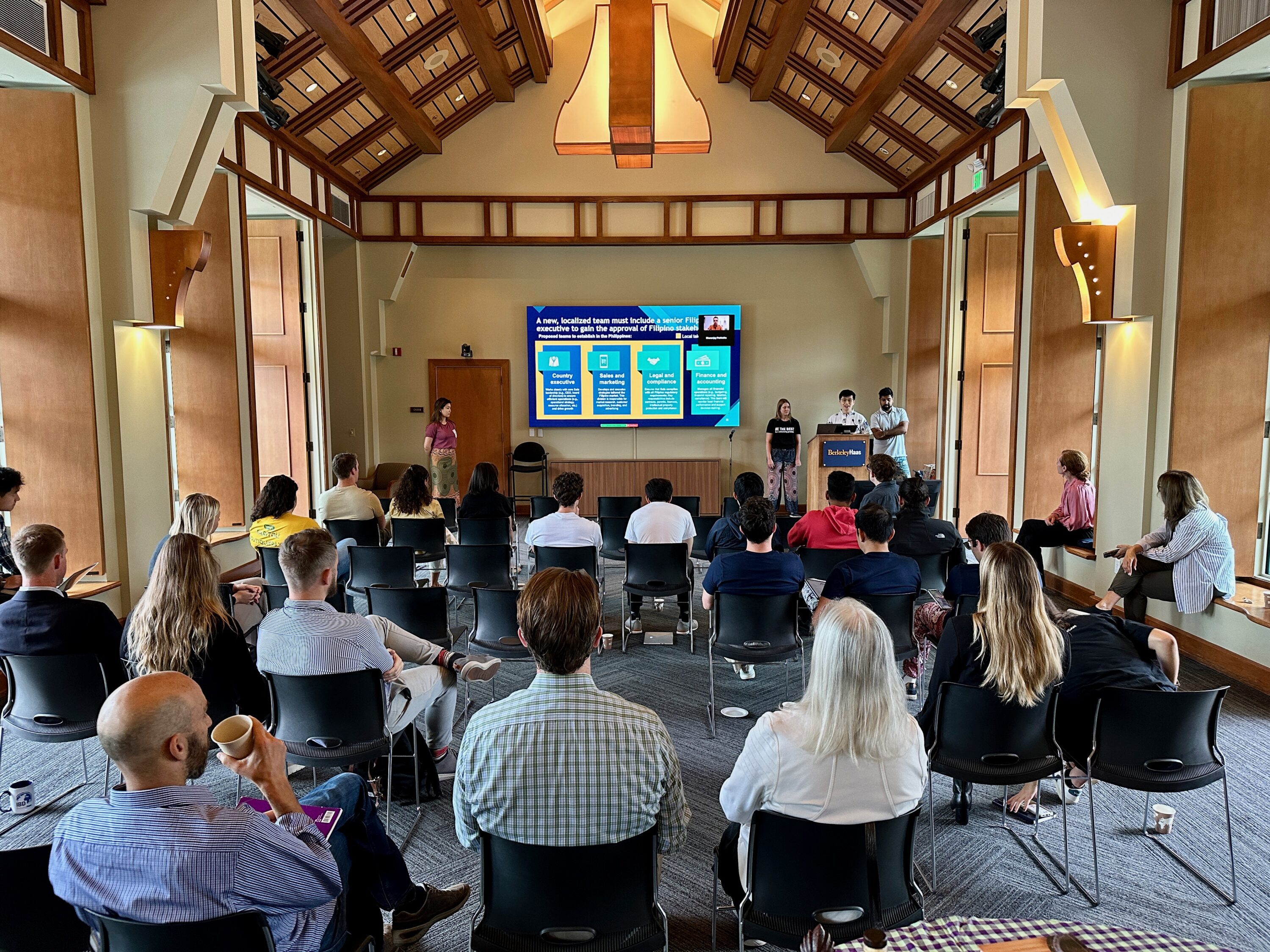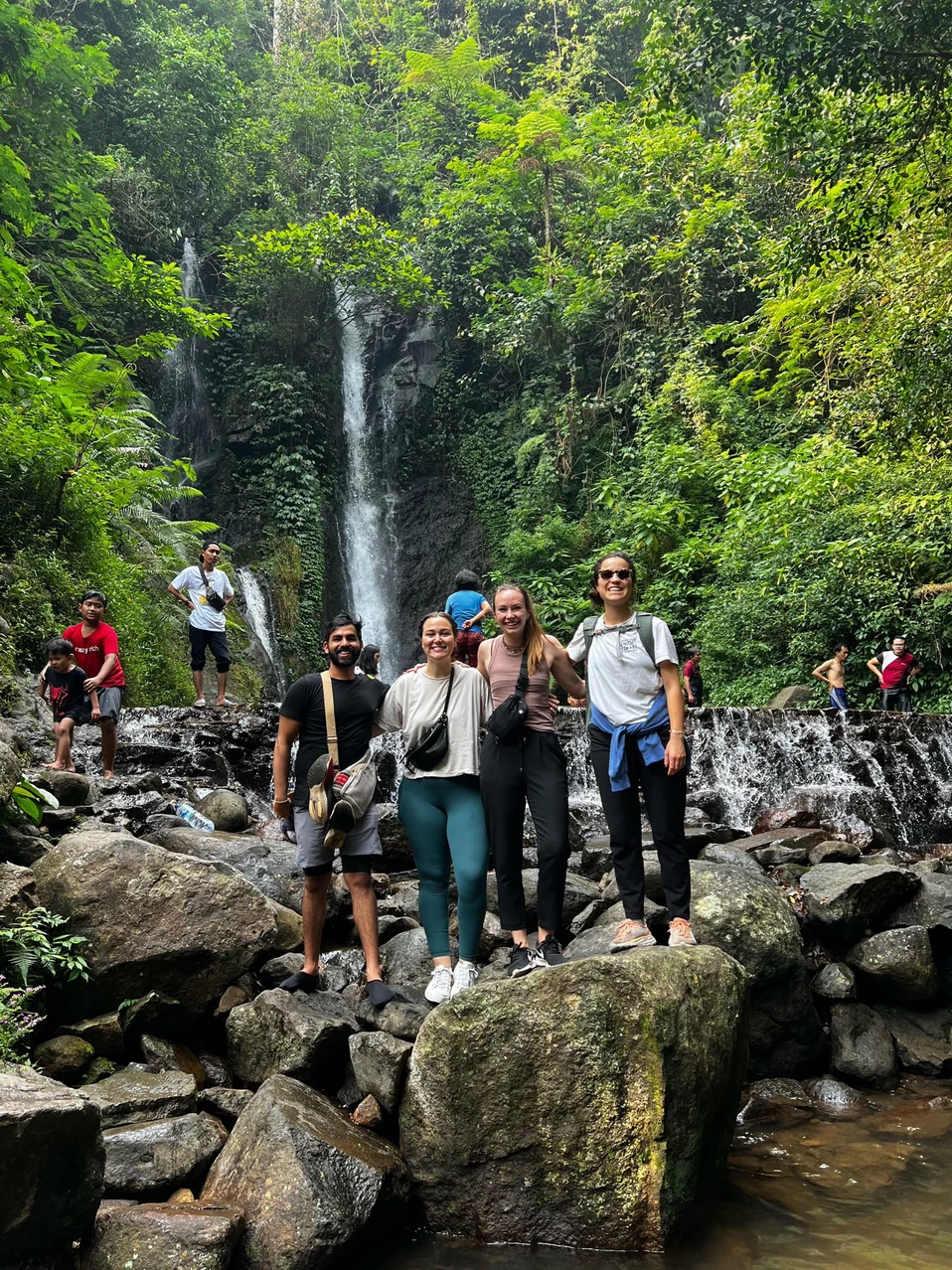Interview with IBD project client Ashesi University
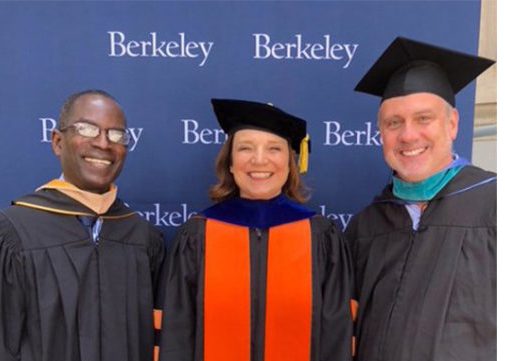
Berkeley Haas IBD program participants had the honor of working with Ashesi University on a strategic consulting project during the spring semester 2021 IBD program. This is the 15th time that IBD and Ashesi have collaborated on a student led project. Patrick Awuah, Founder and President of Ashesi University, worked on a strategic vision for Ashesi when he was an IBD student at Berkeley Haas (MBA ‘99). Founded in 2002 and based in Ghana, this private, non-profit institution is recognized as one of the outstanding universities of Africa.
Recently we interviewed the three Ashesi University contacts responsible for the latest IBD project, asking them questions about their project sponsorship and what they gained from working with the IBD team.
IBD Interviewer: Would you introduce yourselves and give a little background on your role at Ashesi?
William Ohene Annoh: I work as the Research Administrator for the Professor Adei Studio for Research Excellence, under the Academic Affairs Department.
Sena Agbodjah Agyepong: I serve as the Head of the Business Administration Department, and teach Entrepreneurship and Project Management with the department. I also support the Academic Affairs Department on grants and projects.
Angela Owusu Ansah: I serve as Provost at Ashesi University, and like Sena I dabble in different projects — and once in a while I guest lecture in research courses.
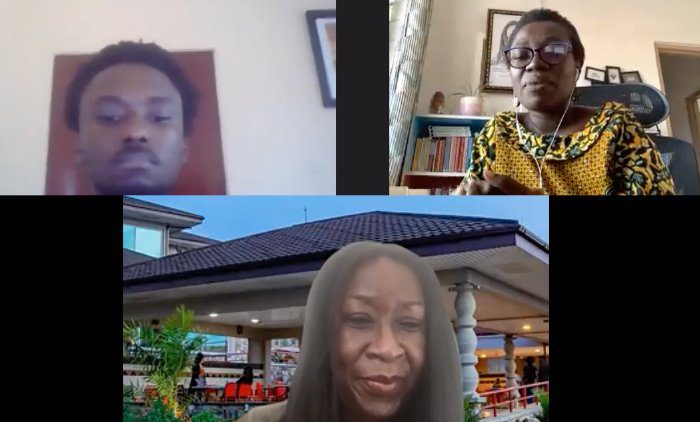
IBD Interviewer: What was the project that you asked IBD to help you with this year?
Sena Agbodjah Agyepong: We asked the IBD program to partner with us on an Executive Education program to add on to Ashesi offerings on the continent. The objective of the Executive Education program is rooted in our mission to train entrepreneurial leaders for the continent. We realized an Executive Education program would be beneficial to our mission as an institution and will respond to requests by people in industry and organizations to support training staff. In that way we are making an impact and achieving our mission in multiple areas, with this one solution. We had two major aspects that we needed to validate: one was the market sizing, and the other was a financial model.
William Ohene Annoh: We collaborated with the IBD team because we’ve been doing these collaborations for a while, and it was a good way for us to get a second perspective on the feasibility of this program and further validate our idea.
Angela Owusu Ansah: As Sena mentioned, our mission encourages us to produce individuals who will transform the continent, but we’re an undergraduate program and so our graduates are at entry level. The impact (of our work) is felt within their cubicles and space but doesn’t expand fast enough or broad enough. By moving into the graduate or executive education space, we are tasking ourselves to work with the CEOs and management level leadership. We feel this will help us leapfrog in the process, and this would help us impact many individuals in many spaces.
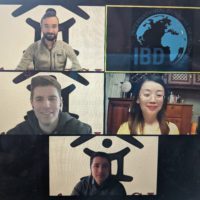
IBD Interviewer: How was it working with the team over the last three months? Was it a good experience?
Sena Agbodjah Agyepong: The IBD team added value to what we were working on. The team was very responsive to feedback, listening and checking in to be sure that what they were doing actually resonated with us and that they were addressing our concerns. I liked the diversity of the team; there were different strengths, expertise, and competencies to help achieve the objective.
William Ohene Annoh: It was a great experience working with IBD students because we had done an initial pilot of the Executive Education Program and it was nice to hear them confirm some of these thoughts and give us a few more ideas on how to actually implement it. They had a few conversations with executive education professionals outside the continent, and it was nice to hear those different perspectives too. They gave us different deliverables for market research and financial projections, and because of how receptive they were towards the feedback, we went through a number of iterations.
IBD Interviewer: Did you feel comfortable with the recommendations that the IBD team gave you during their final presentation?
William Ohene Annoh: Executive Education is part of the University’s strategic plan for 2030 and we had some initial ideas regarding revenue and other financial projections. The IBD team worked with us to validate and refine the financial model ,bringing us closer to actually implementing the project. It was just helpful to see them scope it out and give us an actual plan on how to go to market with it, how to reach out to participants, or what the market space looks like, etc.
IBD Interviewer: Do you think that’s something that you’ll be able to utilize in the near future?
William Ohene Annoh: Going through this process with the IBD team has given us some information on how best to run our first class and how best to work on marketing subsequent programs, etc. They designed a template for financial projections, and we can use this as a guide to see the revenue numbers for different structures of the program.
IBD Interviewer: Do you foresee that we’ll have the opportunity to work with you all again?
Angela Owusu Ansah: I mean certainly. Different teams bring different perspectives, certain resources that we would not have access to, etc. I think working with an IBD team brings a more comprehensive view on what we’re doing. I think no matter what, it is very valuable for any new idea to try and reach out to the IBD.

